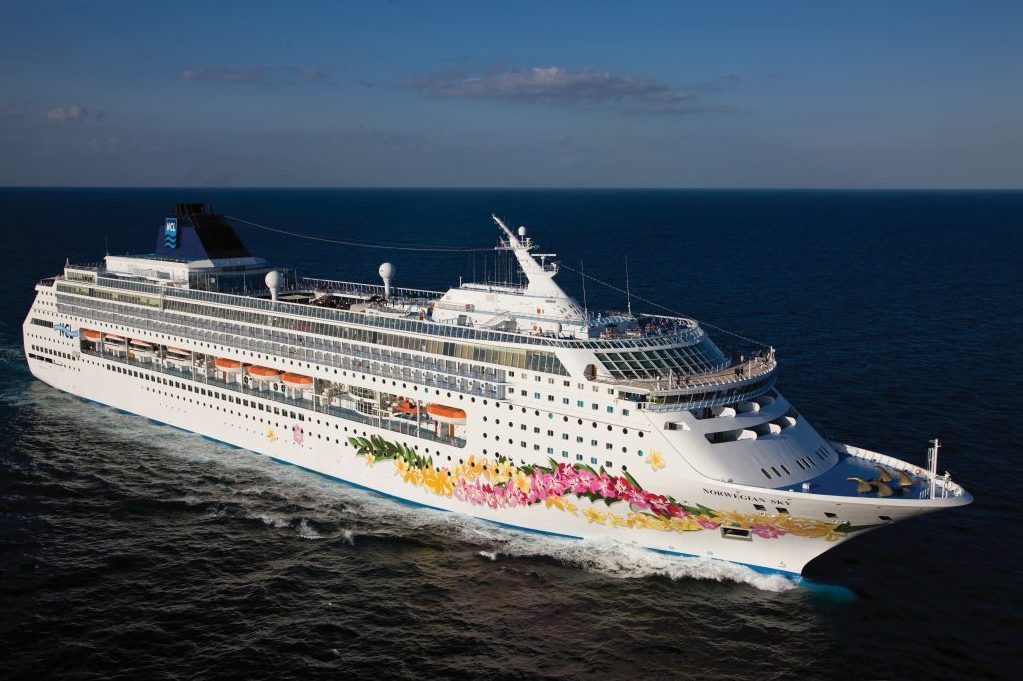The 3 Largest Cruise Companies Can Now Take Tourists to Cuba. What's Next?

Skift Take
The first cruise ship in many decades sailed between Miami and Havana this spring. Since the Carnival Corp.-owned vessel made that trip in May, rival cruise lines have been making plans as they waited for their turns.
They got some good news on Wednesday.
Cuban authorities gave permission for five more lines — two owned by Royal Caribbean Cruises and all three owned by Norwegian Cruise Line Holdings — to come to Cuba in a move that will send thousands more visitors pouring into Havana next year.
The news comes amid uncertainty over the future of U.S.-Cuba relations once President-elect Donald Trump takes office. President Barack Obama started the process of easing travel restrictions to Cuba in December of 2014, which enabled cruise lines to start considering the island as a real possibility.
Royal Caribbean Cruises gave few details about its plans Wednesday but said it would offer "multiple itineraries" on ships from its Royal Caribbean International and high-end Azamara Club Cruises lines.
A statement from Royal Caribbean did not say whether the trips will sail solely in Cuba or whether port stops there will be added to broader Caribbean voyages. Details will be released "in the near future," the company said.
Royal Caribbean has been fairly public since early this year about its intention to send the 1,602-passenger Empress of the Seas to Cuba, though the company did not confirm which vessel it would send Wednesday. Azamara has two ships, each with room for 690 passengers.
"Our guests have expressed real interest in having the opportunity to experience Cuba, and we look forward to bringing them there," Richard D. Fain, chairman and CEO of Royal Caribbean Cruises, said in the statement. "Our discussions with our travel partners indicate that Cuba is a destination that appeals to a new generation of travelers."
Norwegian will visit the island with its three brands — Norwegian Cruise Line, Oceania Cruises, and Regent Seven Seas Cruises — by incorporating Havana stops into existing itineraries.
The first will be a sailing from Miami in March on Oceania's Marina, which has capacity for 1,250 passengers. The ship is currently scheduled for a 14-day trip with 10 stops; the itinerary will change to include Havana. The 700-passenger Seven Seas Mariner will visit the island twice in April. And Norwegian Sky, a 2,004-passenger ship, will call on Havana during "a selection of" four-day trips in May originally planned to visit only the Bahamas.
Norwegian Cruise Line spokeswoman Vanessa Picariello said the company has only received approval for a limited number of cruises through May of 2017.
"This is a very short season," she said. "It's a select number of sailings, 10 in total." She added that the company remains "hopeful" that it will receive permission to send ships "for the long term."
More details will be released between Thursday and Dec. 20, and voyages will open for booking between those dates depending on the cruise line. Representatives from the lines are working to contact passengers already booked for those dates to notify them of the changes and collect additional information for visas, insurance, and other requirements.
"We are tremendously excited to have all three of our award-winning brands receive approval from the Cuban authorities to offer cruises to Cuba from the United States," Frank Del Rio, president and CEO of Norwegian Cruise Line Holdings, said in a statement. "As a Cuban-American and founder of Oceania Cruises, I am incredibly proud that one of Oceania's vessels will be our company's first to sail to Cuba. This is truly a dream come true for me, and I cannot wait for our loyal guests to experience the sights and sounds of my hometown of Havana and get to know its rich culture and its warm and welcoming residents."
Because Americans still cannot visit Cuba for the purpose of tourism alone, Royal Caribbean and Norwegian said they would provide activities on shore that comply with U.S. rules. That includes "people to people" exchanges and cultural experiences.
Rival Carnival Corp. was the first operator to receive the green light from Cuban officials to sail between Miami and Cuba. Fathom, which has a single 704-passenger ship, has been alternating every week between volunteer-focused sailings to the Dominican Republic and cruises to Cuba that call on three ports.
The Cuba sailings have been far more popular, and Carnival Corp. is awaiting approval to send vessels from other lines to the island starting in June while planning to keep the Fathom ship visiting through May. The vessel, Adonia, returns to a sister line in the UK in June when the Fathom cruise line will be discontinued. Fathom will continue as a brand through social impact shore excursions on other Carnival-owned ships in the Dominican Republic.
Vicky Garcia, chief operating officer of home-based travel agency network Cruise Planners, said in an interview that Fathom provided agents a good introduction to Cuba-by-ship.
"They went, raved about Cuba and can't wait to go back," she said.
Garcia, who is based in South Florida, said she expects cruise passenger interest in the island to continue even after multiple lines start offering sailings.
"I think that island can support a lot of people; it's big enough to really be a great destination for cruises," she said. "It's definitely different than just some other island opening up in the Caribbean. It has long-term appeal."





